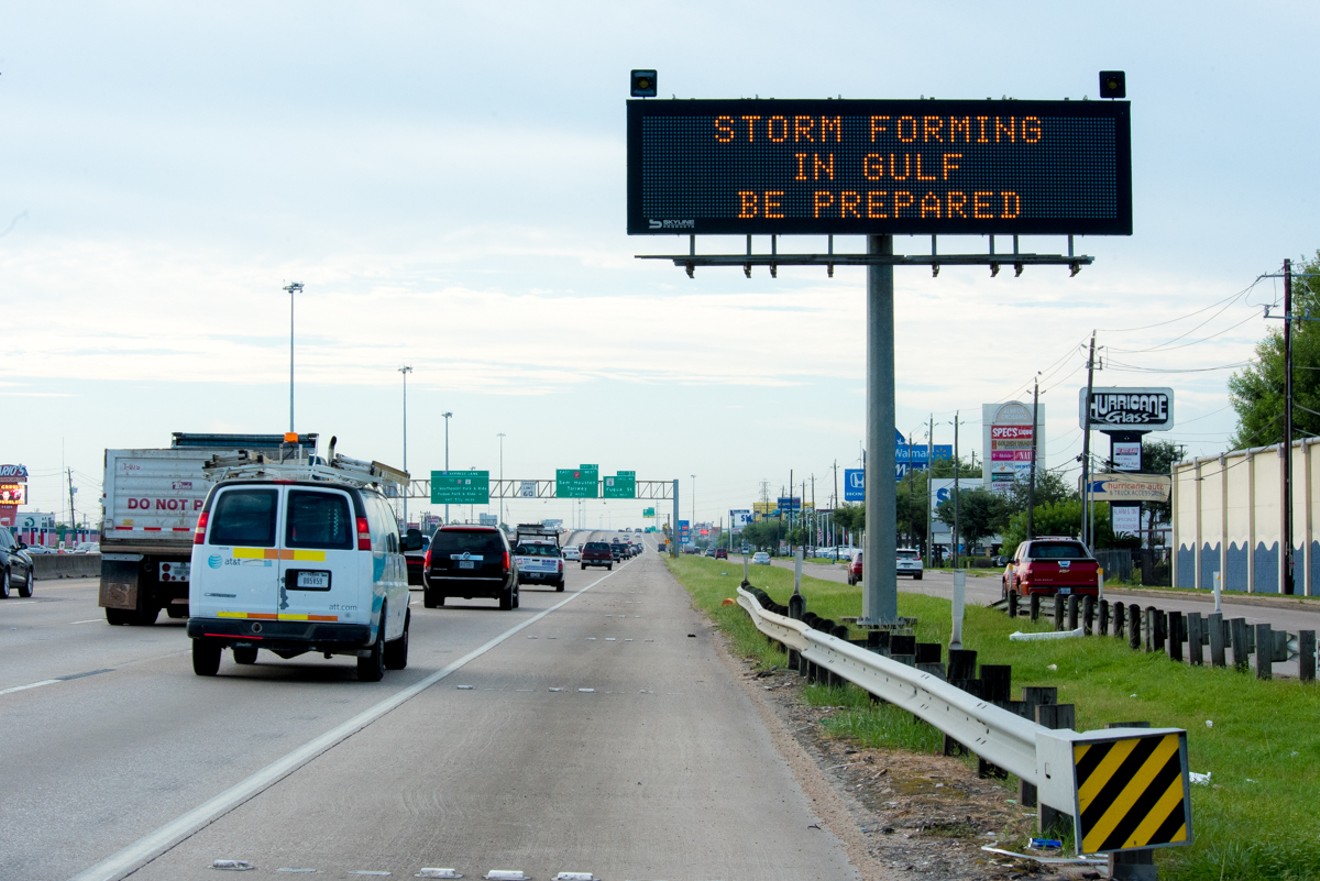Hurricane season begins on June 1 and, by all accounts, it is expected to be a busy season. Perhaps not 2020 busy when a record number of storms was recorded, but more active than normal according to the latest predictions from the National Hurricane Center.
Living along the Gulf Coast means knowing the dates of hurricane season, understanding the potential implications and, most importantly, being prepared. But because we are still a couple weeks out from the start of hurricane season and roughly two months from the season's peak, this is a really good time to look at your checklist, particularly if you are a homeowner. There may be some things you hadn't considered that require time to prepare.
Check your insurance policies.
Frankly, if you live in Houston, you should have flood insurance. This includes those who have never flooded, even those who have constructed their homes feet off the ground. If the storms (tropical and otherwise) over the last decade have taught us anything it is that anyone can flood here. If you aren't in the flood plain, it will probably cost you less than $50 per month, well worth the effort. And there is still time to get it. Most policies have a 30-day wait period.
While you are looking into that, scrutinize your homeowner's policy. Check to make sure wind damage is covered both from straight winds and from flying debris. Broken windows and damaged roof shingles can get costly if a storm were to hit.
Consider backup power.
Full home generators are pricey. Most people probably cannot afford the tens of thousands it costs for the convenience of keeping the lights on in case of a storm-related blackout. Ditto solar cell batteries that can come with solar panels if you have them. But, regular universal power supplies are cheap and come in really handy.
They won't power your whole home, but they will allow you do keep your computer, phone and internet up and running, even a few lights. A sturdy enough one will power your fridge for a little while. And you can get a small adaptor for your car that connects to the lighter to charge anything from phones to, yes, universal power supplies. If you want a longer-term solution, a generator is your best bet if you can come up with the cash.
Get your trees checked and trimmed.
One of the biggest wind hazards comes from falling trees and flying branches. No one can prevent the uprooting of an old oak tree in your front yard, but keeping trees well pruned will help dead branches from snapping off an whipping around your yard. Just as importantly, thinning out branches allows air to move through your trees more easily.
Also, a good arborist can check on the health of the trees in your yard. You don't want to find out that 60-foot pine tree was rotting from the inside out after it collapses on your living room.
Stock up on supplies.
This is a good time to get the basics that you will need for the season. Bottled water, batteries for anything that needs them, extra gasoline for your car or a generator, these are all items that can be bought and stored without spoiling.
Another good plan is to put things in your freezer. Drop some old milk jugs filled with water in the freezer. If the power goes out, you can put them in your refrigerator to help keep things cool for a while. They are also a good source of fresh water. Plus, things like bread stay good in freezers for months and might come in handy when the only cooking you are doing is with a toaster hooked up to a battery backup.
Finally, if you do want to have protection for windows by boarding up, do not wait. Get the measurements and supplies purchased before there is a massive run on plywood.
Have a plan for yourself, your family, your pets and your home if you decide to leave.
Decide now what would push you to leave ahead of a storm. For those in evacuation zones, the choice is easier. For those of us who may just not want to endure the roaring winds and potential flood waters, the choice is trickier. But, whatever the case, make a plan and include your loved ones and especially your pets.
Know where you are going to go and how you want to get there. Have anything you need to bring with you (insurance information, computer equipment, dog food, cat carriers, etc.) ready to go quickly and easily. Having all that set up in advance will make things much easier for you and your whole family, both the two- and four-legged varieties.
Lastly, prepare your home. Discuss your plans with neighbors and secure your belongings, particularly those outside that could fly away in windy conditions. The smaller the mess you leave, the less you'll have to clean up when you get back.
Support Us
Houston's independent source of
local news and culture
account
- Welcome,
Insider - Login
- My Account
- My Newsletters
- Contribute
- Contact Us
- Sign out

If you own a home in Houston, the time for getting prepared is long before there is a storm in the Gulf. How about now?
Photo by Jack Gorman
[
{
"name": "Related Stories / Support Us Combo",
"component": "11591218",
"insertPoint": "4",
"requiredCountToDisplay": "4"
},{
"name": "Air - Billboard - Inline Content",
"component": "11591214",
"insertPoint": "2/3",
"requiredCountToDisplay": "7"
},{
"name": "R1 - Beta - Mobile Only",
"component": "12287027",
"insertPoint": "8",
"requiredCountToDisplay": "8"
},{
"name": "Air - MediumRectangle - Inline Content - Mobile Display Size 2",
"component": "11591215",
"insertPoint": "12",
"requiredCountToDisplay": "12"
},{
"name": "Air - MediumRectangle - Inline Content - Mobile Display Size 2",
"component": "11591215",
"insertPoint": "4th",
"startingPoint": "16",
"requiredCountToDisplay": "12"
}
]
KEEP THE HOUSTON PRESS FREE...
Since we started the Houston Press, it has been defined as the free, independent voice of Houston, and we'd like to keep it that way. With local media under siege, it's more important than ever for us to rally support behind funding our local journalism. You can help by participating in our "I Support" program, allowing us to keep offering readers access to our incisive coverage of local news, food and culture with no paywalls.
Jeff Balke is a writer, editor, photographer, tech expert and native Houstonian. He has written for a wide range of publications and co-authored the official 50th anniversary book for the Houston Rockets.
Contact:
Jeff Balke
Trending News
- Four Reasons the Astros Are Bad at Baseball Right Now
- Measles On The Rise, Health Experts Say, and Houston Isn't Immune
- Texans GM Nick Caserio Will Generate NFL Draft Fireworks on Friday Night
-
Sponsored Content From: [%sponsoredBy%]
[%title%]

Don't Miss Out
SIGN UP for the latest
news, free stuff and more!
Become a member to support the independent voice of Houston
and help keep the future of the Houston Press FREE
Use of this website constitutes acceptance of our
terms of use,
our cookies policy, and our
privacy policy
The Houston Press may earn a portion of sales from products & services purchased through links on our site from our
affiliate partners.
©2024
Houston Press, LP. All rights reserved.





